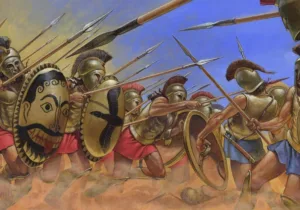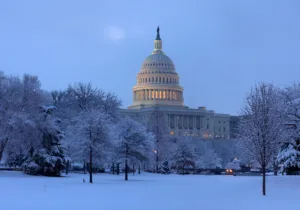I just knew he was going to get shot. Sadly, one had that sense in that annus horribilis of 1968. The reactions of the crowds that greeted Senator Robert Kennedy in his quest for the Democratic presidential nomination were wildly enthusiastic, in the main. But sometimes they were just wild. And with 300 cities in flames after the assassination of Dr. Martin Luther King Jr. just months earlier, there was violence in the air. I recall sitting up late to get the returns from the California Primary. I was living in New York at the time. I fell asleep in front of the TV, only to be awakened by the shouts: “He’s been shot!”
There was not much sleep for young political junkies in that tumultuous year. Robert Kennedy’s assassination on this date upset the presidential election of 1968. It was the first time in our history—and let us pray the last time—that a candidate with the best prospects for nomination and election had been struck down by a crime of violence.
I’ve often wondered “what if?” What if that man-mountain Roosevelt Grier had managed to push the arm of assassin Sirhan Sirhan down and deflected the shot? Rosy Grier was a beloved pro-football player who was proud to be part of those protecting this special life.
A man of deep faith, as many Kennedy supporters were, Grier bravely tackled the murderer, but only after the fatal shot. Just a few seconds earlier, and this good man might have saved RFK’s life.
What if Kennedy had been only wounded, perhaps paralyzed, as Franklin D. Roosevelt was? What if he’d gone on to defeat Richard Nixon in the 1968 race? My own hero, Hubert Humphrey, came very close to turning around the popular vote against Nixon, but Bob Kennedy had sources of support that Hubert could not equal.
And what if Kennedy had faced the Vietnam War still dragging on after three inconclusive years? Might Kennedy have turned to Vietnamization to get us out of there—following a script not unlike the one Richard Nixon himself would eventually employ?
How about abortion? Would Democrat Bob Kennedy have appointed a Harry Blackmun, a Warren Burger, a Lewis Powell, or a William Rehnquist to the Supreme Court? Three of those Nixon appointees went on to legalize abortion on demand.
It would not have surprised anyone if a President Robert F. Kennedy had appointed Harvard law professor Archibald Cox as chief justice. And no one has written a more persuasive legal case for the right to life than Archibald Cox. It is hard to imagine abortion becoming orthodoxy among Democrats if Bob Kennedy had lived.
The motive of the assassin, Sirhan Sirhan, was never in doubt. He proclaimed it. The young man was a Palestinian Arab. He was enraged by the lightning victory of Israel in the Six-Day War of 1967. Sirhan wrote in his diary “RFK must die.” He chose this date, June 5, because that was the one-year anniversary of the day the Israelis chose to respond to Arab threats to “drive the Jews into the sea.” Israel prevailed in that short, sharp conflict, but the miraculous survival of the Jewish state in the face of five hostile armies fueled Palestinian rage.
Robert Kennedy had rejected the anti-Semitism of his father, Ambassador Joe Kennedy, and had pledged to send 50 jet fighters to Israel to help that small, embattled country survive in a sea of enemies. For that, he would pay with his life.
This is a day for reflection on the might-have-beens. Violence has no place in our politics. As Lincoln famously argued, there can be no appeal from ballots to bullets. And there is no place even for violent talk from our leaders. It has become commonplace to see videos of politicians brandishing weapons, even pointing them at young people. Violent talk leads to violent action. It is a clear and present danger. Candidates promise to “carpet bomb” our enemies. That’s loose talk. Franklin D. Roosevelt gave orders to Gen. Dwight D. Eisenhower and Gen. Douglas MacArthur in our war against Germany and Japan. Those countries were actually subjected to what we today would call “carpet bombing.” But neither Roosevelt, Eisenhower, nor MacArthur ever engaged in bloodlust.
Robert Kennedy spoke eloquently after the assassination of Dr. King. His plaintive and soothing words helped to stanch the wound of violence—at least in Indianapolis, at least in his immediate area. He said that government should seek “to tame the savage nature of man.” Indeed. I did not agree with all of Robert Kennedy’s policies when I was a young man. I backed Hubert Humphrey instead. But I never doubted he was “on the side of the angels.” And now they are on his side.
—
Robert Morrison is a former Reagan official and senior fellow at the Family Research Council who blogs from Annapolis.
Photo Credit: Robert F. Kennedy in the White House’s Cabinet Room on January 28, 1964. LBJ Library photo by Yoichi R. Okamoto.






 Live in the DC area? Sign-up for Providence's in-person events list!
Live in the DC area? Sign-up for Providence's in-person events list!